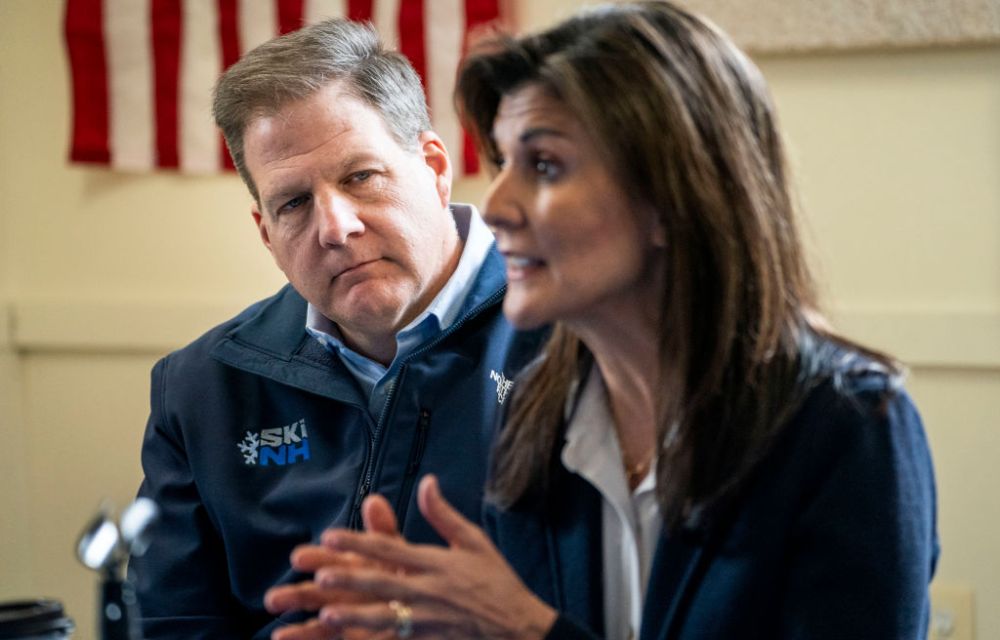Hello and happy Sunday. I’m feeling even more grateful for our readers than normal this week. It’s been a tough few weeks for the journalism business. The Messenger, a publication that launched in May with both considerable fanfare and financial backing, abruptly shut down on Wednesday. The Wall Street Journal laid off about 20 people from its Washington bureau. Toward the end of January, the Los Angeles Times eliminated more than 100 positions. And it’s been just a few weeks since I wrote what was essentially an obituary for Sports Illustrated.
These tough times for journalism are hardly new—I don’t remember any time, really, during my career where things were great. (That’s probably not a coincidence, given that I started my career right as the internet was taking off as a news medium.) The causes are numerous and complex. Maybe The Messenger shouldn’t have spent $8 million renting office space in various cities when journalists are quite capable of, and often prefer, working from home. Maybe its leadership shouldn’t have hired experienced reporters who deserve generous salaries and then assign them the task of regurgitating reporting from other outlets. So many poor decisions were made in The Messenger’s eight-month existence that it’s almost unfair to hold it up as an example for what’s wrong with the industry. Other media companies have been taken over by hedge funds or other corporate owners that slash expenses. Everyone has struggled with a changing landscape in which Google and Facebook have hoovered up a good chunk of advertising dollars.
Journalism has always been a tricky business. A good way for a company in any industry to succeed is to figure out what people want and then give it to them, whether it be tasty hamburgers, pocket-sized supercomputers, or free two-day delivery on books, dog food, shoes, kitchen gadgets, and a million other things. But that’s not a great model for responsible journalism: Those who take the job seriously know that it requires us to report on all manner of unpleasant topics. And we’ve seen the many, many downsides of giving the audience what they want when they don’t want the truth.
But it’s still a business, and serious journalists and media executives acknowledge that reality. I don’t like to see anyone lose their job—it’s something I’ve been through more than once. But I also rolled my eyes pretty hard a while back when Washington Post guild members staged a one-day walkout over stalled labor negotiations. Workers wanted a 4 percent raise and a $100,000 minimum starting wage for reporters at a time that management was getting ready to offer voluntary buyouts and amid reports that the paper lost $100 million in 2023 alone.
I could go on a long discourse about the rise of the internet and the decline of advertising dollars, the bad incentives created by our political polarization, how liberal media bias prompted the rise of a right-wing media ecosystem that is much more like talk radio than anything else, yadda yadda. But you’ve probably heard it all before. The media industry ain’t in great shape.
Which is why we’re so grateful for our readers. We chose to try to do something a little different, and we couldn’t do it without you. We started small and we’ve grown organically. We’ve invested in on-the-ground reporting instead of fancy offices. And we’re pretty proud of what we’ve accomplished. Thank you for your support.
Earlier this week, the House passed a bipartisan tax package that, among other things, would expand the child tax credit so that lower-income families who don’t qualify for the full $2,000 would now receive it. Is it a good idea or not? We published arguments for both sides this week. Kevin Corinth, a senior fellow at the American Enterprise Institute, argues that the bill’s elimination of work requirements turns a measure intended as tax relief into a welfare program, and that we have other programs in place to help families with no earnings. “We should not use the tax code as a run-around to the safety net we already have,” he writes. “Tax credits should make the tax code more fair. Safety-net programs should help poor families escape poverty.” On the other hand, Patrick T. Brown describes the legislation as a modest gesture that will help the most vulnerable. He writes: “The best case for the CTC, or other child-related tax benefits, is the one that recognizes the burdens parents bear, particularly in an era of declining fertility, and recognizes the intergenerational interest all of us have in making having a family a little more achievable.”
New Hampshire Gov. Chris Sununu has been a staunch advocate for Nikki Haley and was a near-constant presence by her side in the weeks leading up to his state’s Republican presidential primary. It’s the kind of work that could, in normal times, pay off with a plum spot in the Haley administration were she to win. But Haley has very little chance to actually win the nomination, so … what comes next for a talented and popular politician who’s committed the unforgivable sin of attacking Donald Trump? He could go back to the private sector, David Drucker reports, or bide his time until 2028. Or, there’s always No Labels, the nonpartisan political group that is considering running a unity ticket in the 2024 election. “As a fiscally conservative, socially moderate Republican who has been successful in a battleground that Democrats have otherwise dominated in statewide elections, Sununu is exactly the sort of politician No Labels is looking for to lead its possible White House ticket,” Drucker writes. “The group envisions a Republican presidential nominee and Democratic running mate, and Sununu is not only credentialed and likable, but a fresh face and adept at garnering media attention.”
You might have noticed that our culture coverage around here is more inclined to reviews of books about Shakespeare or of Hayao Miyazaki films than hot takes about, say, the latest Travis Scott album. And we’ve written endlessly about our desire to focus on reporting and sober, serious policy analysis—which leads us to ignore a lot of crazy stuff in the process. But there’s a tipping point. And when certain figures on the right start suggesting that the relationship between Taylor Swift and Kansas City Chiefs tight end Travis Kelce is a “psy op” to help get Joe Biden elected, well, even we can’t resist. “Everything about it is stupid,” Jonah writes in his Wednesdsay G-File (🔒). “It’s stupid on the ‘merits’—the scare quotes are necessary because there are no merits. It’s stupid politically in every regard. I don’t think a Swift endorsement would matter very much. But all of this performative ass-clownery means her inevitable endorsement will matter more, and to Biden’s benefit.” For his part, Nick runs through the various claims made on Fox News, One America News, and by online influencers and declares, “The modern American right is a movement whose leader records songs with convicts who helped him try to stage a coup and in which QAnon devotees are encouraged by party chieftains to pursue leadership roles. And even by those standards, this latest nonsense is weird.”
And here’s the best of the rest:
- John McCormack reports on the state of a Senate bill that would address the border crisis while also providing funding for Ukraine, Israel, and Taiwan. As of publishing time, the text has yet to be released, but Speaker Mike Johnson is calling it dead on arrival in the House.
- In The Collision, Mike and Sarah explain how scandalous allegations against Fulton County District Attorney Fani Willis could upend the prosecution of Donald Trump in Georgia. (And in a hearing after we published this, Willis admitted to a relationship with a prosecutor she appointed to the case.)
- Some Republicans called out Democratic Rep. Ilhan Omar of Minnesota this week for comments that suggested she was more loyal to her home country of Somalia. One problem? They were relying on a faulty translation of Omar’s speech, which she delivered in her native language. Alex has the details in this fact check.
- If you like the “Economics for English Majors” section of Kevin Williamson’s Wanderland newsletter, you’ll love his most recent edition (🔒). Come for his lesson on the dangers of monetizing the debt, and stick around to see why he’s a little obsessed with the number three right now.
- On the pods: David French and Sarah discuss the border crisis and the legal battle between the Biden administration and Texas Gov. Greg Abbott. On The Dispatch Podcast, the gang talks about the Big Tech CEOs testifying before Congress and the border crisis before eventually getting around to Taylor Swift and Travis Kelce. And British journalist and politician Daniel Hannan joins Jonah on The Remnant to provide an outsider’s take on when America took a turn for the crazy.







Please note that we at The Dispatch hold ourselves, our work, and our commenters to a higher standard than other places on the internet. We welcome comments that foster genuine debate or discussion—including comments critical of us or our work—but responses that include ad hominem attacks on fellow Dispatch members or are intended to stoke fear and anger may be moderated.
With your membership, you only have the ability to comment on The Morning Dispatch articles. Consider upgrading to join the conversation everywhere.